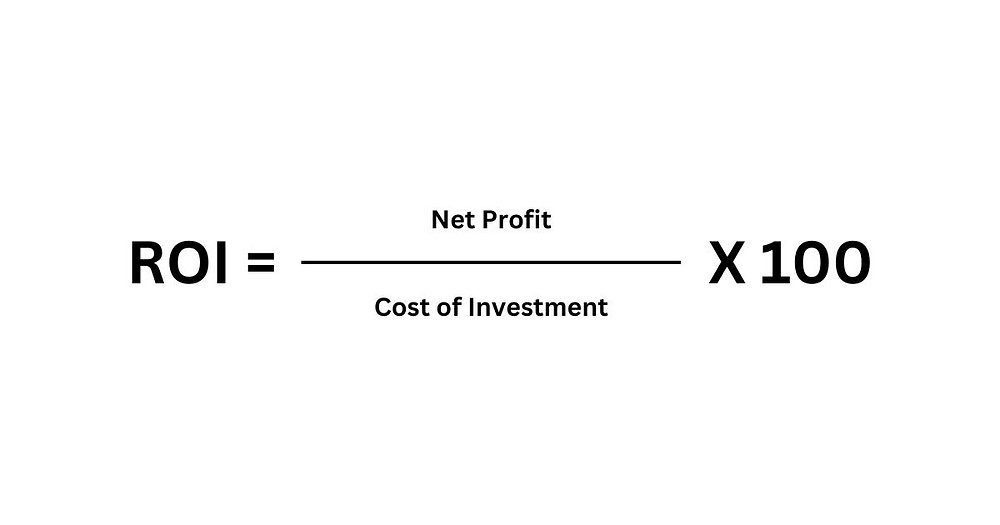Managing rental properties can be a lucrative venture, but achieving a high return on investment (ROI) requires strategic planning and execution. Whether you’re a seasoned investor or just starting, understanding how to optimize your property management approach can significantly impact your income. This article delves into effective strategies for enhancing rental income, reducing vacancy rates, and ensuring tenant satisfaction, which are all critical to maximizing your ROI.
Understanding ROI in Rental Property Management
Before diving into strategies, it’s essential to understand what ROI means in the context of rental properties. ROI measures the profitability of an investment relative to its cost. In property management, this involves considering rental income, operating expenses, and property appreciation. A high ROI indicates a successful investment, while a low ROI may suggest the need for improvements.
Calculating ROI

Where net profit is your rental income minus expenses (such as maintenance, property management fees, and taxes), and cost of investment includes the purchase price and any additional costs related to the property. This simple calculation helps you identify how effectively your property is performing financially.
1. Strategic Pricing
One of the most crucial aspects of maximizing rental income is setting the right price.
Researching the Market
Conduct thorough research on comparable properties in your area. Look for similar properties regarding size, amenities, and location. Online platforms like Zillow and Realtor.com can provide valuable insights into current rental rates.
Adjusting for Seasonality
Consider the seasonality of the rental market. If you live in an area that attracts tourists during specific times of the year, adjust your pricing accordingly. During peak seasons, you might raise your rates, while off-peak times could necessitate price reductions to attract tenants.
Offering Incentives
Consider offering incentives to attract tenants, such as a discount on the first month’s rent or waiving application fees. These strategies can encourage prospective renters to choose your property over others.
2. Enhancing Property Appeal
A well-maintained and attractive property not only draws tenants but can also command higher rental rates.
Regular Maintenance
Regular property maintenance is vital for retaining tenants and maximizing income. Schedule routine inspections and upkeep to prevent minor issues from becoming costly repairs.
Upgrading Amenities
Investing in upgrades can significantly boost your property’s appeal. Consider adding features like modern appliances, energy-efficient systems, or outdoor spaces. High-quality amenities often justify higher rental prices and attract quality tenants.
Curb Appeal
Don’t underestimate the power of curb appeal. First impressions matter; a well-kept exterior can entice potential tenants. Simple improvements, such as landscaping, fresh paint, and clean walkways, can make a significant difference.
3. Effective Tenant Communication
Clear and effective communication is essential for maintaining tenant satisfaction and minimizing turnover.
Being Accessible
Make yourself accessible to your tenants. Whether through phone, email, or messaging apps, ensure they know how to reach you with questions or concerns. Quick responses build trust and foster positive relationships.
Regular Updates
Keep tenants informed about property-related matters, such as maintenance schedules or community events. Regular communication demonstrates that you value their residency, promoting long-term satisfaction.
Feedback Channels
Encourage feedback from your tenants regarding property management and amenities. Use surveys or casual conversations to gauge their satisfaction and identify areas for improvement. This proactive approach can prevent dissatisfaction before it escalates.
4. Minimizing Vacancy Rates
Vacancy rates directly impact your rental income. Implementing strategies to minimize these rates is crucial for maximizing ROI.
Efficient Marketing Strategies
Use various marketing strategies to reach potential tenants. Leverage social media, online rental platforms, and local advertisements. High-quality photos and engaging property descriptions can help your listing stand out.
Flexible Leasing Terms
Consider offering flexible leasing terms, such as short-term rentals or month-to-month agreements. Flexibility can attract a wider range of tenants, particularly in fluctuating markets.
Streamlining the Application Process
Make the application process as easy and quick as possible. A complicated or lengthy process can deter potential tenants. Utilize online applications and prompt responses to inquiries to keep interested parties engaged.
5. Implementing Technology
Technology can streamline your property management tasks and enhance tenant satisfaction.
Online Payment Systems
Adopt online payment systems that allow tenants to pay rent conveniently. This reduces late payments and provides tenants with a hassle-free experience.
Property Management Software
Consider using property management software that helps track expenses, manage tenant communication, and automate maintenance requests. This technology not only saves time but can also improve the overall tenant experience.
Virtual Tours
Incorporate virtual tours into your marketing strategy. This feature allows potential tenants to view your property remotely, attracting those who may not be able to visit in person.
6. Building Strong Tenant Relationships
Fostering positive relationships with tenants can lead to longer tenancies and reduced turnover.
Personal Touch
Get to know your tenants personally. Small gestures, such as sending a holiday card or remembering special occasions, can foster loyalty and appreciation.
Addressing Concerns Promptly
When tenants express concerns or issues, address them promptly and professionally. Demonstrating that you care about their living experience can enhance tenant satisfaction.
Creating Community
If you manage multiple properties, consider organizing community events. Building a sense of community among tenants can promote longevity and satisfaction.
7. Conducting Regular Property Inspections
Routine property inspections can help you identify maintenance issues before they escalate into costly repairs.
Scheduled Inspections
Establish a regular inspection schedule to assess the condition of the property. During these inspections, check for signs of wear and tear and address any issues promptly.
Tenant Involvement
Encourage tenants to report maintenance issues as they arise. This proactive approach can prevent problems from worsening and help maintain the property’s value.
8. Understanding Legal Obligations
Being aware of and complying with local laws and regulations is crucial for effective property management.
Fair Housing Laws
Familiarize yourself with fair housing laws to ensure that your rental practices are non-discriminatory. Violations can result in legal issues that negatively impact your business.
Lease Agreements
Ensure that your lease agreements are comprehensive and legally compliant. Clear terms regarding rent, maintenance responsibilities, and property rules can help prevent disputes.
Eviction Processes
Understand the eviction process in your state to manage any potential tenant issues. Knowing your rights and responsibilities can help you navigate difficult situations effectively.
9. Leveraging Professional Services
Sometimes, partnering with professionals can lead to better management outcomes.
Property Management Companies
If managing your property becomes overwhelming, consider hiring a property management company. They can handle tenant relations, maintenance, and marketing, allowing you to focus on other aspects of your investments.
Real Estate Advisors
Consult with real estate advisors to help you make informed decisions about property upgrades, pricing strategies, and market trends. Their expertise can provide valuable insights into maximizing your ROI.
10. Continuous Education and Adaptation
The real estate market is constantly evolving. Stay informed about industry trends and adapt your strategies accordingly.
Attend Workshops and Seminars
Participate in workshops, webinars, and seminars focused on property management and real estate investing. This continuous education can provide fresh insights and innovative strategies.
Networking with Peers
Join local property management associations or real estate investment groups. Networking with peers can lead to valuable tips and resources that enhance your property management efforts.
Conclusion
Maximizing ROI in rental property management requires a multifaceted approach, focusing on strategic pricing, tenant communication, ongoing property maintenance, and understanding legal obligations. By implementing the strategies outlined in this article, property owners can enhance their rental income, reduce vacancy rates, and ensure tenant satisfaction. Continuous education and adaptation are essential in this dynamic market, allowing landlords to stay competitive and achieve their investment goals. With dedication and the right strategies, you can turn your rental properties into thriving sources of income.




